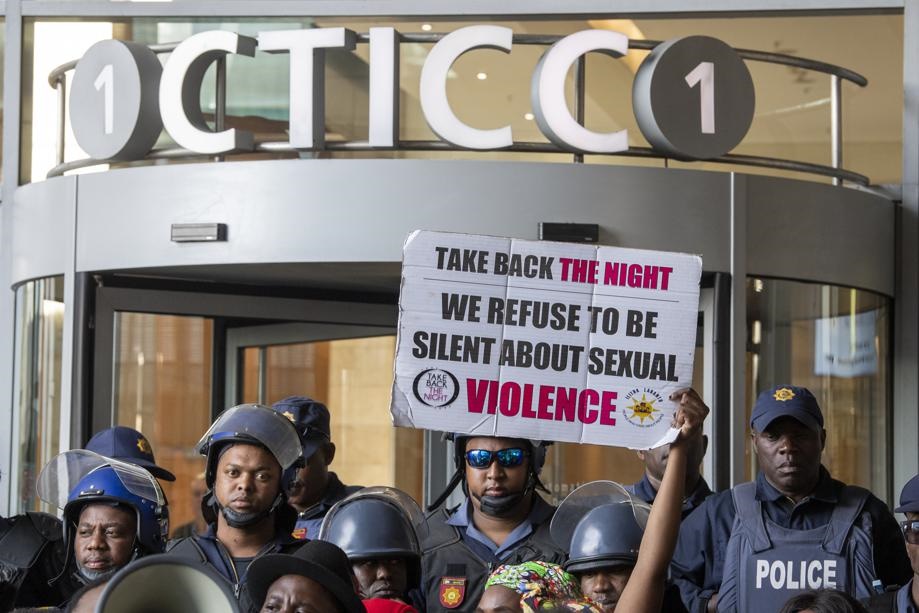
The debates our society is now engaged in are reactive rather than informed by a shared value system. Gender-based violence cannot be effectively addressed without a shared value system of equality of all humans, writes Mamphela Ramphele.
I have spent the past weekend perplexed by the vehemence with which an academic colleague with whom I shared a round table discussion reacted to my proposal that civic education is essential for enhancing the quality of representation and accountability in any democracy.
I had also dared to suggest that given the legacy of authoritarian non-democratic and unaccountable governance our democracy would benefit enormously from embedding civic education in schools, places of worship and workplaces. That prompted my learned colleague to charge me with wanting to impose middle class values on poor people.
This response surprised me because the people I know who could be termed middle or upper class, in my view also need civic education to become more critical thinking citizens who not only claim their rights (as many do) but also discharge their responsibilities in our highly unequal and inequitable society.
Given my non-Marxist political pedigree, I decided to educate myself on what is regarded as middle class values. The literature assured me that the term is used to include such qualities as hard work, self-discipline, thrift, honesty, aspiration and ambition.
These values turn out to be the same values we were taught as children growing up in a village where our parents could not have regarded themselves as middle class. We were taught that: "a person holds these values dear and practices them in all social relationships because that is what it means to be human – the essence of Ubuntu."
Violence against women, children reflect lack of shared values
The current state of our nation and democratic system are characterised by the lack of these values of Ubuntu. Inequality, poverty in the midst of plenty, unemployment of able-bodied people, are the result of the non-transformed structure of our economy that excludes the majority, are the antithesis of Ubuntu. Brutal violence directed at women, children and anyone considered competitors, corruption and unaccountability in the public and private sectors, lawlessness and disrespect of life and nature, reflect a society in dire need of shared values.
The late Kader Asmal, a constitutional lawyer and then minister of education, as far back as July 2001, proposed that our country invest in promoting Ten Fundamental Values that are at the core of our national Constitution: Democracy, Social Justice, Equality, Non-racialism, Ubuntu (Human dignity), Open society, Accountability (Responsibility), Rule of Law, Respect, Reconciliation. Sadly, Kader's fellow Cabinet members led by then president Thabo Mbeki, rejected the proposal.
The proposal was not about imposing these values on citizens but to use them as conversational pillars about what it meant to be a citizen and what kind of society we wanted to shape and live in. These conversations would have helped us to tackle the legacy of authoritarianism that has left all of us scarred across the divides of colour, age, cultures and gender. They would have fitted perfectly into the Life Orientation periods in all schools, Student Orientation programs at university, personnel development and well-being programs in the workplaces in both private and public institutions, faith communities and community level conversations.
The debates our society is now engaged in are reactive rather than informed by a shared value system. Gender-based violence cannot be effectively addressed without a shared value system of equality of all humans – men and women – and respect for human dignity. Outlawing corporal punishment by our Constitutional Court makes little sense to people who have not had the opportunity of engaging in discussions about how to promote discipline in children without violence. Nor have there been opportunities to discuss how to nurture self-discipline in children and adults in a manner that enhances human dignity and harmony between people regardless of age, status and culture.
Long-term returns on investment
International experience, including on our own continent of Africa, indicates that civic education has high long-term returns on investment. The research indicates that civic education helps citizens to learn how to fulfil the essential responsibilities of citizenship. There is also growing evidence that communities with strong civic health are more resilient due to the higher capacity to work together with neighbours to identify, discuss and solve community problems, build relationships and develop essential skills.
Civic education programmes can have meaningful long-term impacts in increasing political information, feelings of empowerment and mobilizing people to engage in political participation. The key success factor is the approach to civic education. It has to be facilitated as a participatory process, not a top-down imposition. The approach needs to open opportunities for conversations about choices citizens face and how to navigate what would work for them and their families, communities and ultimately society.
I cannot see any risk of "imposing middle class values" if civic education is an engagement process that empowers people to choose what is good for them. The majority of citizens embrace Ubuntu as inherently defining what it means to be human. Africa as the cradle of humanity was enabled by this all-embracing value system of Ubuntu to provide an ecosystem suitable for our evolution as humanity. Why are we not leveraging this heritage to strengthen our democracy and heal our wounds of division and inequity?
- Mamphela Ramphele is the co-founder of ReimagineSA.
Disclaimer: News24 encourages freedom of speech and the expression of diverse views. The views of columnists published on News24 are therefore their own and do not necessarily represent the views of News24.




 Publications
Publications
 Partners
Partners






















